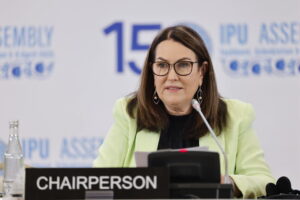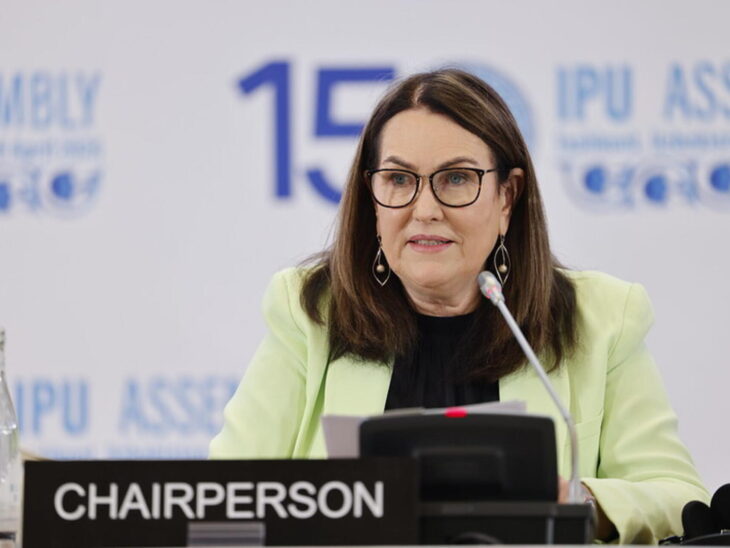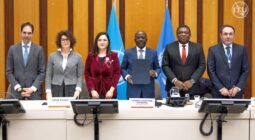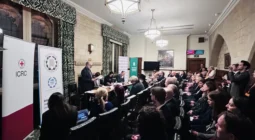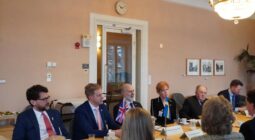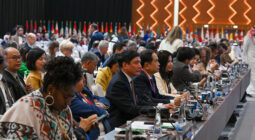

Opinion piece by Senator O’Neill: Ending the tax avoidance economy
Opinion piece by Ms. Deborah O’Neill, member of the Senate of Australia
It was a late night at a committee hearing in the Australian Senate on 15 February 2023 when a shocking truth came to light. In response to my question, the CEO of the Tax Practitioners Board revealed that a tax partner within the local operations of PwC Australia had conspired with “20 or 30 people” within the global firm to monetize confidential Australian Government information.[1] Their goal? To benefit PwC and its international clients.
Further questions led to the release of 144 pages of internal PwC emails. These revealed the depth of the deceit and a disturbing cultural failure within one of the world’s biggest accounting and consulting firms. The motive was clear: profit at any cost. It was also a sign of how some large firms exploit their privileged role in a globalized economy.
Globalization has lifted billions out of poverty. Open markets and free movement of goods, services and capital have helped families and businesses around the world access electricity, sanitation and rising incomes. But governments also play a vital role in ensuring that prosperity is shared, by funding public services and investing in people who might otherwise be left behind.
That is why the social contract matters. When foreign businesses operate in our open economies, they are free to make a profit, but in return, they must pay their fair share of tax. Unfortunately, today too many multinational corporations don’t. They use complex international tax strategies to shift profits and avoid taxes. This gives them an unfair advantage over local, often smaller, businesses who do the right thing. It also starves governments of the revenue they need — diminishing their ability to invest in essential resources that uphold basic human rights. Access to clean water, basic primary healthcare and appropriate shelter should not be compromised by tax avoidance.
The OECD estimates that these tax avoidance practices — known as Base Erosion and Profit Shifting (BEPS) — cost governments between USD 100 billion and 240 billion every year. That’s equal to 4 to 10% of global corporate income tax revenue.[2]
In my pursuit of PwC’s wrongdoing, I served on two Senate committees in the Australian Parliament. At committee hearings, I listened to hundreds of hours of evidence from experts and victims alike. What we found was a pattern: large firms operating across borders with little accountability, extracting maximum profit from the gaps between national tax systems. It is, in effect, a lawless space in the plumbing of global commerce.
But it doesn’t have to be this way.
Nations can reclaim their tax sovereignty. We can support trade and openness while still funding the Sustainable Development Goals. We can tax all firms fairly, whether they be multinational or local.
That’s why Australia supports the global 15% minimum corporate tax rate. New laws were introduced in Australia last year to realize this aim. This minimum standard will reduce harmful tax competition and stop the race to the bottom. However, it must be complemented by strong tax transparency laws, including clear reporting on tax residency and company ownership.
PwC’s actions in Australia show that tax avoidance has become a business model for some global firms. That is unacceptable. We need enforcement. We need oversight. And we need to end the tax avoidance economy.
On 3 October 2025, I had the pleasure of hosting a webinar with my Asia-Pacific Group colleagues to discuss this matter. This initiative provided valuable insights and allowed me to benefit from the experiences of Australia’s Pacific and Asian neighbours. Our region has benefitted greatly from free trade, with billions being lifted from poverty due to globalization, yet the task of social development remains continuous.[3]
Together, as lawmakers working across borders, we can hold multinationals accountable, restore public trust in taxation, and build a stronger, fairer global economy for future generations. As a co-Rapporteur to the IPU Standing Committee on Sustainable Development, I will work with my counterparts, Mr. Rojo Edwards and Ms. Jacqueline Sabao, on the subject item Building a fair and sustainable global economy: The role of parliaments in combating protectionism, reducing tariffs and preventing corporate tax evasion at the 151st IPU Assembly in Geneva. I encourage colleagues from all parliaments to engage in the debate on this subject at the 151st Assembly. Together we can develop a resolution that meets these objectives for endorsement by the IPU membership at the 152nd Assembly.
The views and opinions expressed by the parliamentarians and experts on IPU platforms are their own and do not necessarily reflect the IPU’s position.
[1] Senate Economics Legislation Committee, Estimates Hansard, 15 February 2023, p.105.
[3] The transcript and recording of the webinar can be found at: IPU webinar 3 October 2025.mp4
